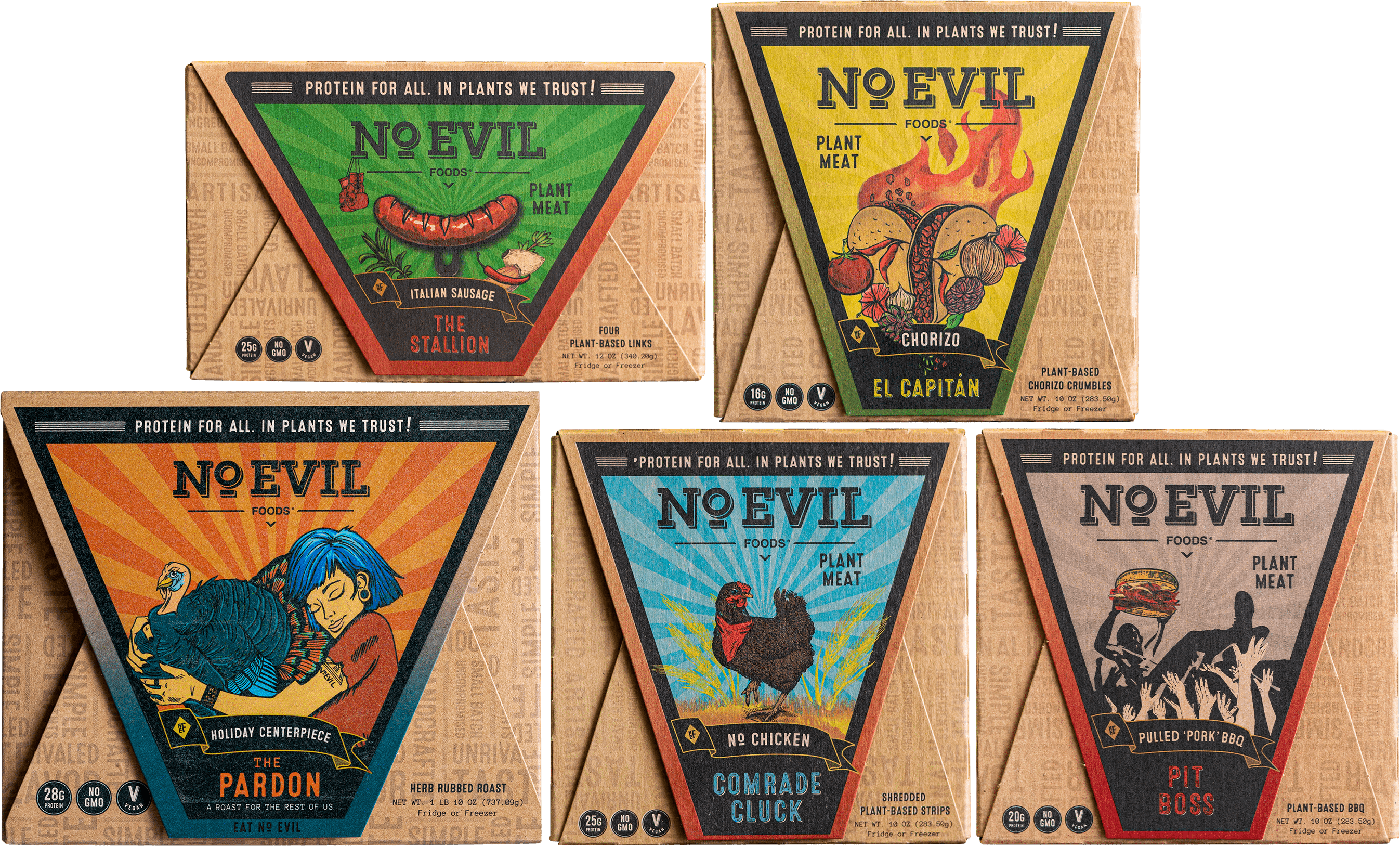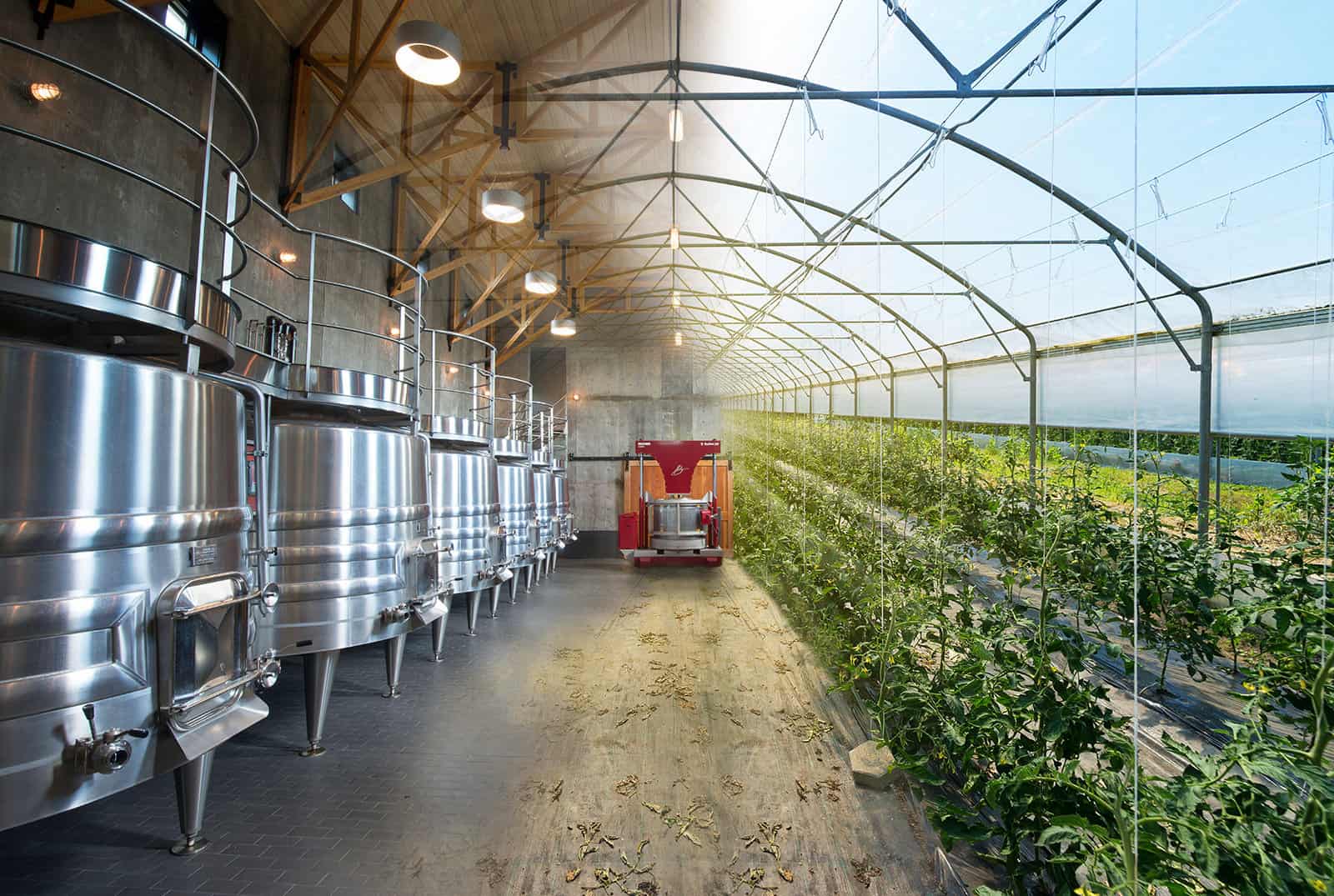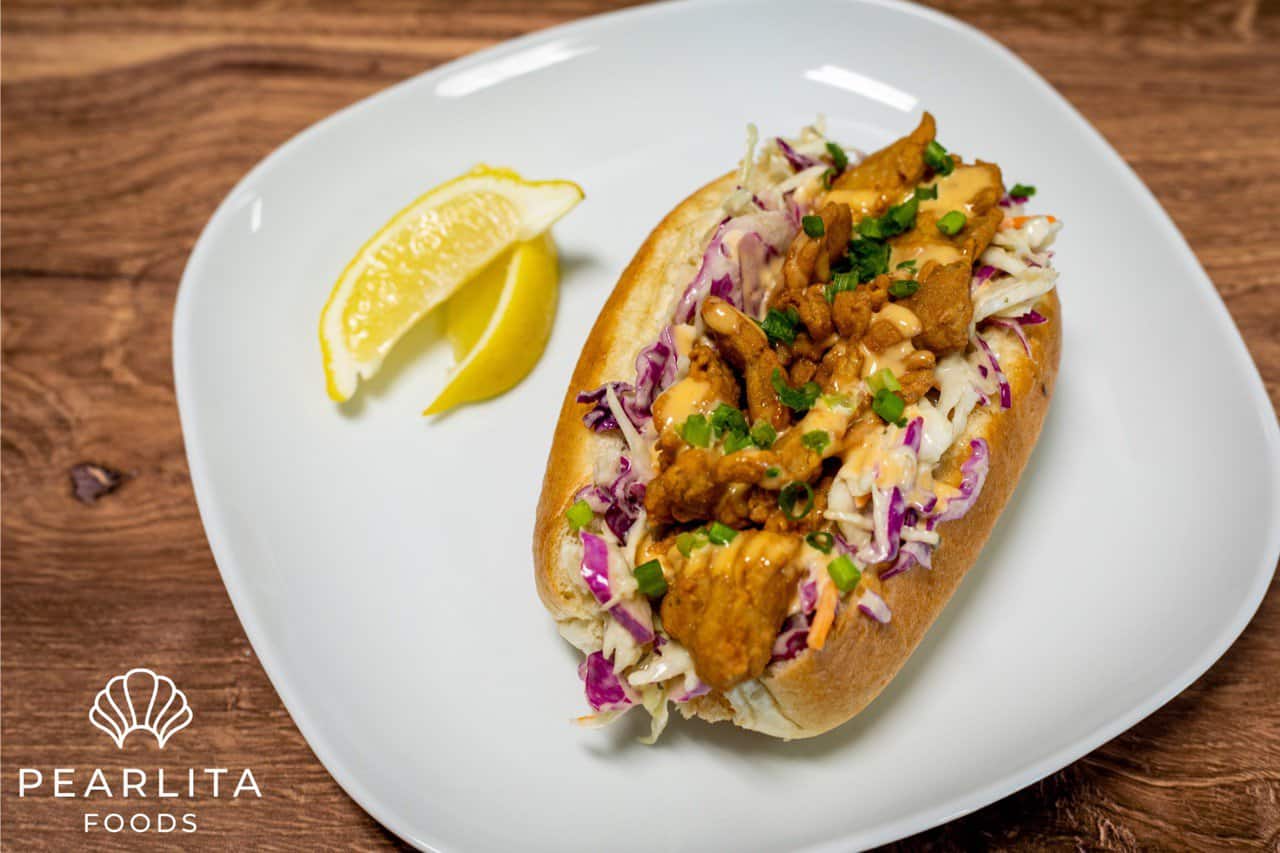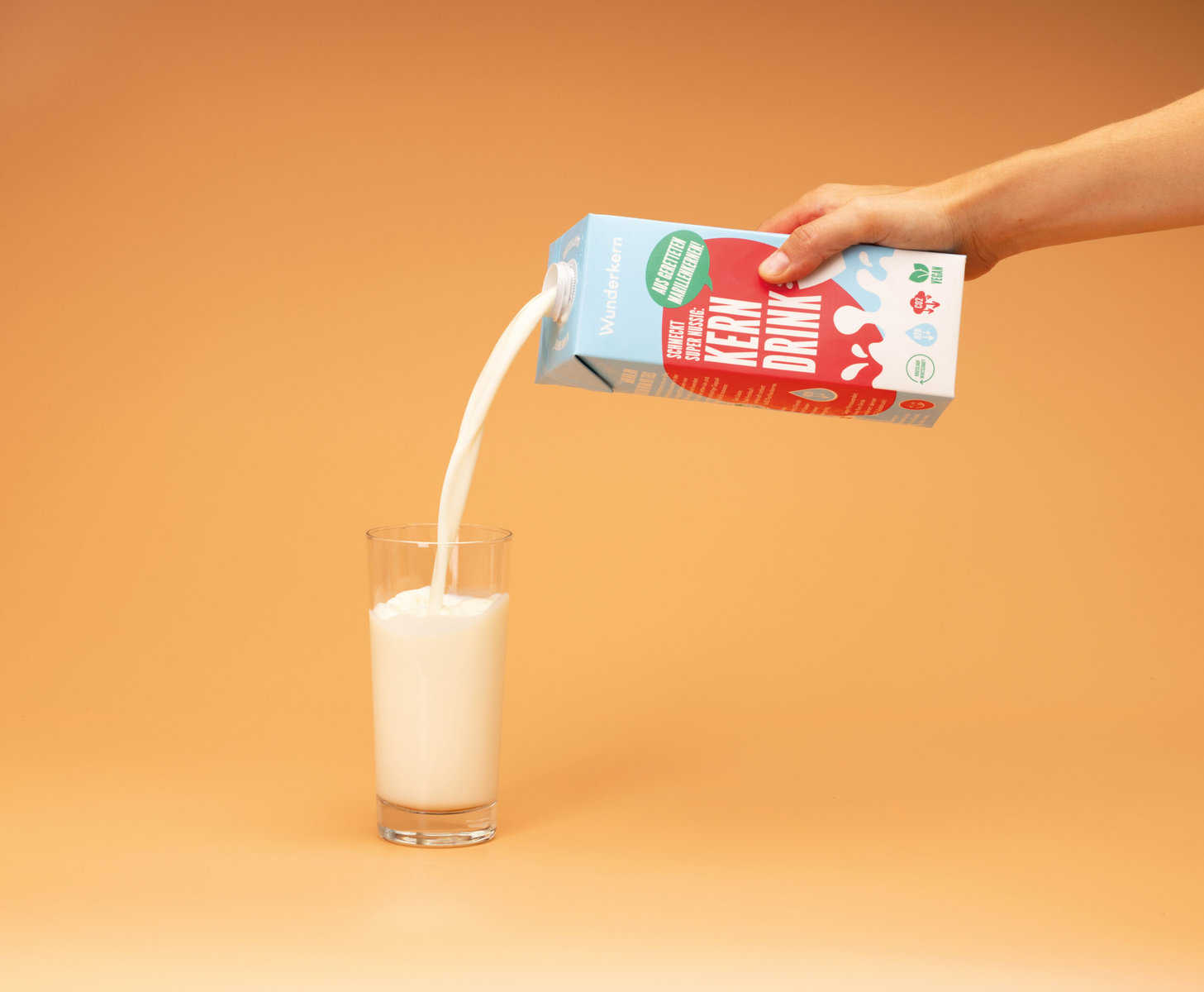Continuing our series on emerging hot-spots in alt protein, we turn to North Carolina, The Tar Heel State – a place better known for its scenic countryside and traditional BBQ than cutting-edge food tech. But North Carolina’s world-class research facilities, low taxes, and pro-tech economy have attracted some of the world’s most innovative animal-free companies looking to disrupt a wide range of industries.
From cultivated oysters and filet mignon to algae-made fabrics and next-level collagen, here are 7 startups turning North Carolina into a visionary center for alt protein and more.
1. No Evil Foods
Founded in 2014 by husband and wife team Mike Woliansky and Sadrah Schadel, No Evil began its journey selling hand-crafted plant-based meats to local shops and restaurants in and around Asheville, North Carolina. The company’s products, which include The Stallion (Italian sausage), Comrade Cluck (chicken), and the Pit Boss (pulled pork), quickly grew in popularity and eventually expanded to thousands of major retailers, including Publix and Whole Foods.
Thanks to its work on reducing plastic packaging and other social initiatives, in 2022 No Evil was selected as a Top 200 Impact Company. Also last year, the company introduced protein-rich beef strips, launched a crowdfunding campaign to re-open its online butcher shop, and received bridge funding to expand its growth strategy.
Commenting on the re-opening of their online store, Schadel said: “No Evil Foods has been a customer-driven brand from day one. When we started to expand nationally, it was because we have unique products with an unbeatable combination of sustainability, recognizable ingredients, and a flavor and texture that fills a void in customers’ lives. Manufacturing disruptions have kept our products out of our customers’ homes. We’ve worked hard to fix that, and now it’s time to bring our Plant Meat back to the dinner table.”

2. Pearlita
It was North Carolina’s famous beaches that attracted Pearlita, the first cultivated company to work with oysters. Using both plant-based and cell-based technology, Pearlita aims to recreate the beloved taste and texture of the prized seafood delicacy, whose wild populations are heavily threatened by overharvesting and pollution.
Last year, Pearlita opened a lab near the famed Triangle Research Park in Raleigh, and by November, hosted an exciting first tasting of its products, which included vegan oyster ceviche and raw oysters on the half-shell. More alt-seafood products, such as squid and scallops, are also in the works.
“It only makes sense to base Pearlita Foods out of Raleigh,” said Pearlita Co-Founder and CEO Nikita Michelsen. “Not only is North Carolina the second largest estuarine system in the country, it is also the fastest-growing biotech and future of food hub. So we will be close to the ecosystems where Oysters thrive and amongst other entrepreneurs – both of which we believe will accelerate our growth.”

3. Barvecue
Besides its scenery, of course, North Carolina is revered for its legendary BBQ, and this inspired native Lee Cooper to reinvent the state’s iconic pulled pork with plants instead of pigs. In 2017, Barvecue launched to offer authentic, wood-smoked plant-based meats, including Pulled BVQ, Naked BVQ and Carnitas. After raising over $3M in funding, Barvecue opened the world’s largest plant-based smokehouse facility – The Carolina Smokehouse – in Cornelius, NC, which can produce 800,000 lbs of vegan BBQ meat per year.
Upon the recent completion of Barvecue’s seed equity round, Cooper stated: “There is a huge opportunity to define the future of plant-based foods and the team at Barvecue is not only producing delicious food, but is also building an amazing emerging brand and business that is unique in our industry.”

4. Myodenovo
Based in Raleigh, Myodenovo is the latest startup to take on the formidable challenge of cultivating thick, whole cuts of meat, specifically filet mignon. To accomplish this, Myodenovo – led by bioengineer and Memphis Meats alum George Engelmayr – is developing an automated process to create whole cuts with bioreactors, as well as its patent-pending, plant-based scaffolding tech. In April 2023, the company revealed it raised $103,00 from investors, and successfully created its first prototype – a bite-sized piece of filet mignon.
“We utilize bioreactors to curate nutritious, sustainable scaffolds that nature offers to deliver meat aficionados that are a delight of succulent, prized-for-texture cuts, all without ever harming a single animal, enabling farmers to cultivate quality and tender meats that aficionados love,” states Myodenovo.

5. Keel Labs (formerly AlgiKnit)
In addition to food, North Carolina’s thriving tech scene is attracting talent from the realm of sustainable fashion, such as biomaterials pioneer Keel Labs. Specializing in algae-derived yarn, in 2021 the Brooklyn-based Keel Labs chose to move its facilities and open an Innovation Hub in Triangle Park, NC. Keel Labs makes eco-conscious textiles by combining seaweed-derived alginate with renewable biopolymers, which offer an efficient alternative to polluting fibers like polyester and nylon. To date, Keel Labs has raised over $13M in funding.
“The name Keel Labs encompasses our vision of ever-expanding horizons, of our commitment to innovation and opportunity,” said co-founder and CEO Tessa Callaghan. “We are building a future in which sustainable materials harness the power of our oceans to span industries and applications, repairing humanity’s relationship with our natural ecosystems.”

6. JellaTech
Along with meat itself, meat by-products are widely used across multiple industries and make up a lucrative $8.4Bn market. Recognizing this massive opportunity, JellaTech was created in 2020 to manufacture eco-friendly substitutes for collagen and gelatin with cellular agriculture. After just two years, the North Carolina startup revealed it developed bio-identical and functional animal-free collagen, and has partnered with CULT Food Science to launch its product into cruelty-free pet food.
Fun note: Founder Stephanie Michelsen is the sister of Pearlita CEO Nikita Michelsen.
“It is becoming more and more evident that we need to change many of our existing practices and the way that we sustain our planet,” said Michelsen. “This achievement just shows that we have a way and now we have laid the stepping stones for a sustainable future of protein production.”

7. BIOMILQ
In 2022, as a baby formula shortage gripped the US, BIOMILQ was hard at work producing “human milk for babies” – a groundbreaking solution for parents who wish to breastfeed but aren’t able to. Using cell-culturing technology, BIOMILQ, led by Michelle Egger and Leila Strickland, is producing human breast milk outside of the body as a healthier alternative to dairy-based formulas. In 2021, the North Carolina startup raised $21M in Series A funding from investors, and through its technology, says its product more closely matches the nutrition profile of breast milk in protein, fats and carbohydrates.

Upon BIOMILQ’s Series A investment, Lindsay McCorkle, Director of Blue Horizon, told vegconomist: “BIOMILQ’s technology will have innumerable benefits – maternal health, both mental and physical, in addition to providing infants with an unmatched nutritional formula substitute. BIOMILQ’s impressive technology paired with its thoughtful product approach make this an investment we are incredibly proud to be part of.”
Stay tuned for the next stop on our alt protein tour – Miami!






